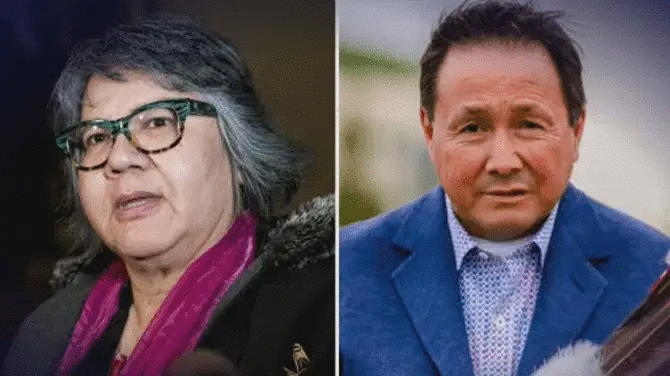Shomporko Online News Desk: Rose Anne Archibald, in her first phone contact with Prime Minister Justin Trudeau since becoming the national chief of the Assembly of First Nations, stated that they will investigate every former residential school in Canada.
“We have residential school survivors who are still suffering, their children and grandchildren are suffering,” said Archibald, who became the first female head of the body in charge of representing more than 600 First Nations throughout Canada earlier this week.
According to Archibald, she requested enough resources from Prime Minister Justin Trudeau to “search for our children.”
“These are crimes against children, these are crimes against humanity, this is genocide, we are all on the same page here in Canada, so the federal government has to assist us to create that healing path forward,” she said.
Speaking with Global News on Saturday, Archibald delved deeper into her major priorities as the AFN’s incoming national chief.
Among them was not only an urgency to uncover all the unmarked burial sites in Canada’s residential schools, but to also find ways to heal the trauma that Indigenous peoples have experienced for generations.
“Our whole communities, all of our communities, our whole nations have been affected negatively by colonialism,” she said.

Archibald calls for more additional supports like the Aboriginal Healing Foundation that could help survivors continue on their healing journey.
Among her other pledges include holding the government more accountable, promising a focus within the next 100 days to double-down on unmarked burial sites at residential schools and on the national action plan on missing and murdered Indigenous women and girls.
Archibald’s rise to the top spot has brought a wave of optimism from Indigenous communities.
She was elected Thursday after her last remaining rival, Saskatchewan’s Reginald Bellerose, conceded following five rounds of voting.
Her rise as the first woman to lead the advocacy group is among many several firsts Archibald has notched prior to being elected.
She was the first woman and youngest chief to ever be elected in Ontario’s Taykwa Tagamou Nation in 1990, and was the first woman to be the Deputy Grand Chief of the Nishwabe-Aski Nation.
In 2018, Archibald had become the first woman to be elected as Ontario Regional Chief.
Her campaign pledge for national chief of the AFN had included a post-pandemic recovery plan for First Nations and more inclusivity and transparency for marginalized groups in AFN’s affairs.
Archibald’s election also comes amid another Indigenous woman’s rise to a top political position.
Mary Simon, an Inuk woman from Kangiqsualujjuaq in Quebec, was named the first Indigenous person to serve as Canada’s Governor-General on Tuesday, a position second only to the Queen in terms of political power in the country.
Archibald’s election, according to Lorraine Whitman, president of the Native Women’s Association of Canada, was a return to form for many First Nations who were matrilineal before colonization.
Whitman stated, “The matriarch is starting to take their place where they were hundreds of years ago.”
Source_The Canadian Press











